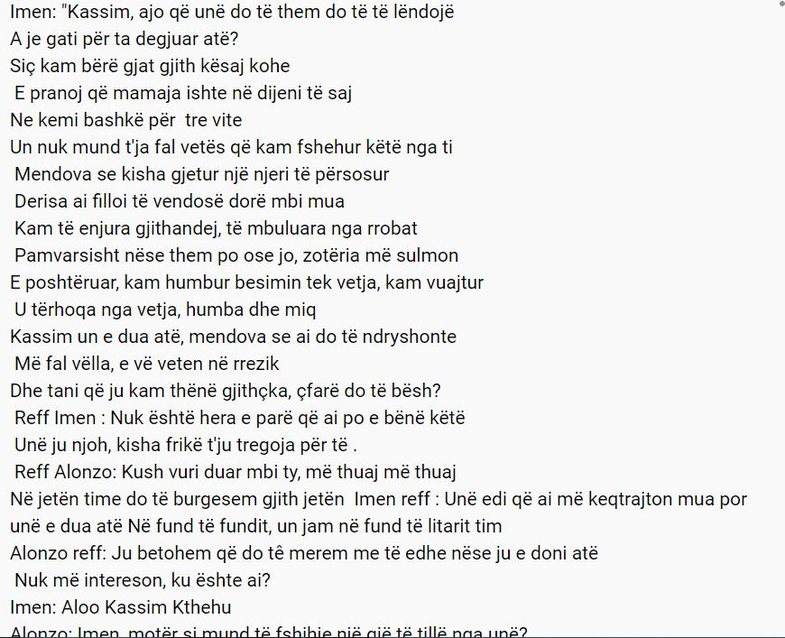
Maybe it is the melody to remember, or the delicate theme that the song deals with and always current in Albania or the video clip very touching, but for one reason or another it seems that Albanians are adoring the song of Imen and Alonzo, "1ere fois" (Hera e first).
The ballad in French was published in March this year and with the passing of the summer, it has become one of the favorites of Albanians. The song is a story / dialogue of brother and sister, where the latter finally decides to tell him that he is being raped by the person he loves.
Apart from the fact that you have probably seen it often in the Instagram stories of your friends, or you have used it yourself, even on YouTube the comments from Albanians are the ones that occupy almost the entire comments section, which also has something in French.




Someone explains the story of the song in the comments and other Albanians translate it into Albanian and English, to help others better understand its history:






